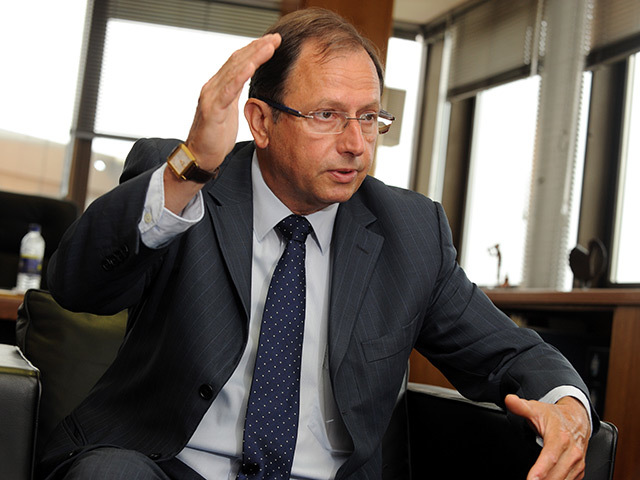
Work may have to stop on some North Sea platforms following the latest helicopter tragedy, according to a leading UK oil boss.
About 40 of the 90 helicopters which serve British fields are now out of service following the decision to ground all Super Puma aircraft while air accident investigators establish the cause of Friday’s crash.
Total E&P UK boss Philippe Guys told the Press and Journal last night that his company is already reviewing its operations – and that other firms will be being doing the same ahead of crunch talks in Aberdeen today.
He said that some projects will have to be delayed because of difficulties getting staff offshore.
And he also revealed that the company is considering using controversial basket transfers – where workers are lifted from boats to platforms by crane.
“I cannot emphasise enough how much I feel for all the people who have lost their lives, and for their families,” the Frenchman said, speaking from the company’s headquarters in Aberdeen
“The priority for us always is the welfare and safety of our people. Yes, we will have to develop a solution (to get people offshore) that is more costly, but cost is not a consideration at this time – safety is the priority.
“There are a number of things we need to consider. Do we have to stop some of the operations offshore? Because we will not be able to get people to work.”
Asked whether this was something all operators will have to consider, Mr Guys replied: “Yes.”
“We hope we won’t have to shut down anything, but we may have to reduce work that we are doing. We might be able to defer work of lower priority.
“Summertime is when platforms are shut down, so that maintenance can be done when the weather is good. It is an intense period of activity.”
The helicopter which crashed on Friday was operated by CHC for Total and was transporting workers from the Borgsten Dolphin platform when it is believed to have experienced a “catastrophic” loss of power. Mr Guys said he “strongly backs” the decision to ground the helicopters right now.
However, he said he still supports the use of Super Pumas in the North Sea – once the cause of the latest crash has been established.
In the meantime, he said companies would “share” seats on the other helicopter types which will continue to operate, and that Total was looking at a number of alternatives.
“We all are looking at different types of sea transport, such as basket transfers,” he said.
“We have sites where it is possible to be done. Elgin Franklin is one – it depends on the conditions.”
The firm is also considering flying staff to Norway by plane and then using the Sikorsky S-92 aircraft based there to fly staff to UK platforms.
